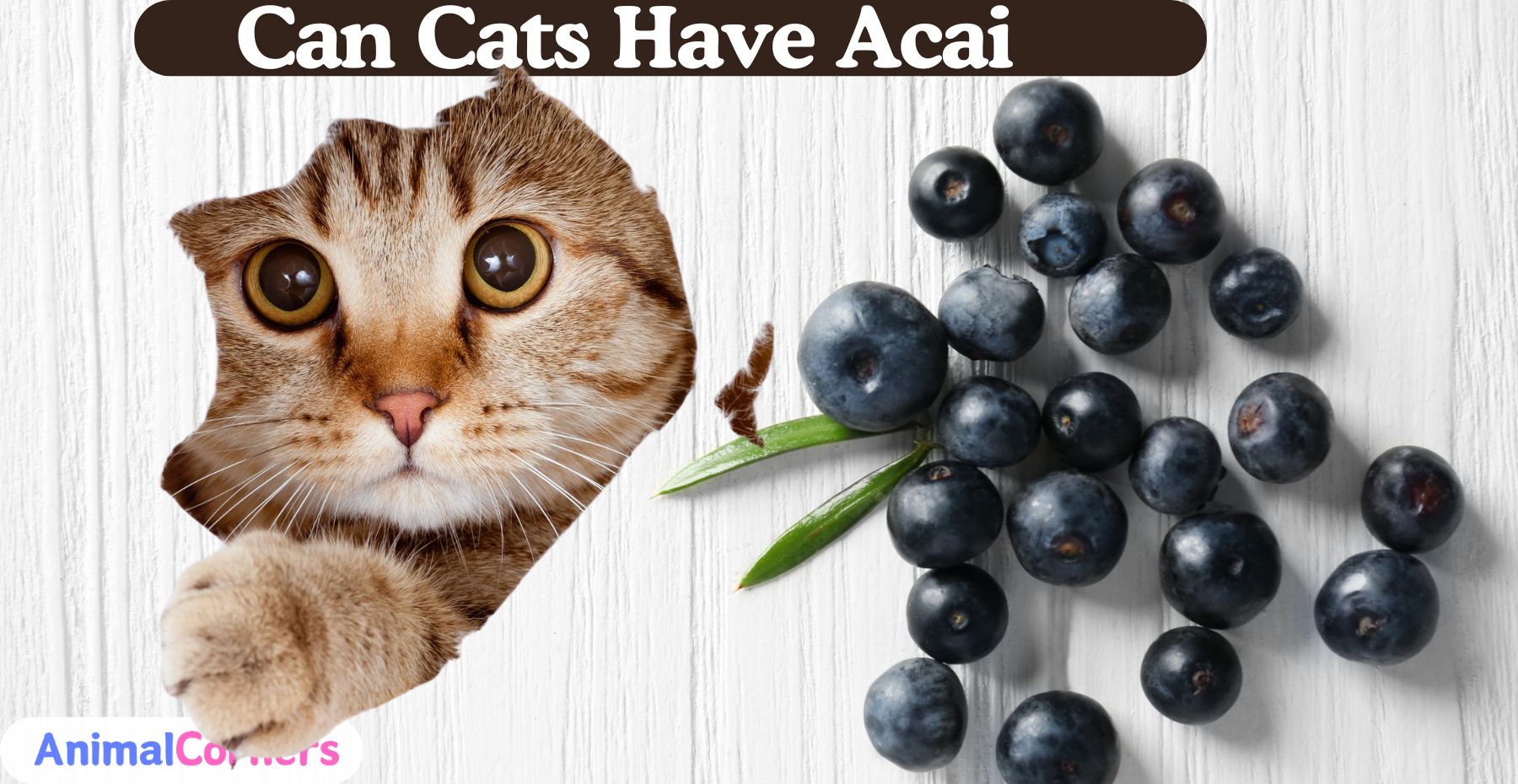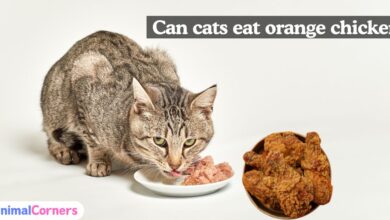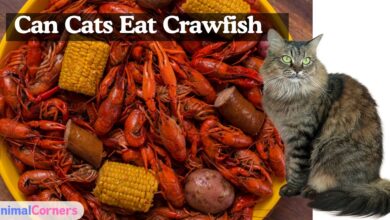Can Cats Have Acai Safely? What You Need to Know

People have been consuming acai berry fruit for many years due to its reputed nutritional value. It is rich in antioxidants, vitamins, as well as minerals, which makes the fruits an addition to human diets. However, a conscientious owner might ask, “Can Cats Have Acai?” This comprehensive review of cat diets aims to clarify the safety of acai berries for cats, the potential risks, and the frequently asked questions by enthusiasts.
What Are Acai Berries?
The acai palm tree, which grows in the Amazon basin of Brazil, produces the small, rounded, blackish-purple berry. These berries are grape-sized and have an intense, slightly rust-flavored taste with underlying chocolate and blackberry notes. The aboriginal population of the Amazon region has traditionally included them in their diet for hundreds of years due to their outstanding, hardly measurable by today’s standards, nutritional value and ability to provide energy. Today’s world recognizes the numerous health benefits of this fruit, incorporating acai berries into smoothies, acai bowls, and dietary supplements.
The antioxidant blend of acai berries specifically includes anthocyanins, which give the berries their distinctive dark purple hue. These antioxidants are beneficial in fighting free radicals in the body, improving the functions of cells, and maybe even preventing more serious diseases. In addition to antioxidants, acai berries also contain healthy fats, fibre, vitamins A and C, calcium, and trace minerals. Although small, these berries are rich in minerals, vitamins, and fiber, and they are especially a favorite among people who are fussy about their health and well-being.
Can Cats Have Acai?
cats should not consume acai berries. Although acai is not considered toxic to cats, it contains substances that are unsafe for them to consume. Here are the key reasons why:
- Theobromine Content
Examining its components reveals some unique features, such as theobromine, which is commonly found in chocolates. Similar to caffeine, theobromine has little effect on humans but can be fatal to cats. Its effects include vomiting, diarrhoea, increased heart rates, and even seizures. - Digestive Sensitivity
The diet of cats contains established fibrous proteins from animal sources. Such fruits as acai contain many nutrients and may lead to digestive disorders such as stomach upsets, diarrhea, or bloating. - Potential Allergens
That means that some cats could be sensitive to one or another ingredient included in acai and might experience itching, swelling, or difficulties with breathing.
Nutritional Needs of Cats
As obligate carnivores, cats require a diet rich in animal-based proteins to maintain their health. While humans and their pets, like dogs, need meat for protein, fats, vitamins, and minerals, cats particularly need nutrients like taurine, arachidonic acid, and vitamins A for heart, vision, and a healthy body. They also require a significant amount of protein to maintain their bodily and muscular fitness, as well as moderate amounts of fat for their coat and skin.
Also, cats require certain vitamins, and these include calcium, phosphorus, and the omega-three fatty acids for growth and the immune system. Again, cats do not respond well to carbohydrates because their digestive systems are not designed to process plant matter. A balanced, meat diet guarantees optimum health in your cat and an increase in his lifespan expectancy.
Why Do Some Pet Owners Consider Acai for Cats?
Some people prefer to feed their cats acai due to its perceived health benefits for humans. Packed with antioxidaAcai, rich in antioxidants, vitamins, and healthy fats, is believed to boost the immune system and combat inflammation in humans. think that their cats may need the same mineral for healthier and better living, especially if the owner wishes to see a better condition of the pet.
Furthermore, with a growing trend towards natural and holistic pet care, many owners are exploring alternative food types to enhance their cat’s nutrition. Still, as it may seem beneficial, cats are very picky about their diets, and not all useful for humans will be either helpful for them.
What Happens If a Cat Eats Acai?
If your cat accidentally ingests a small amount of acai, monitor them for symptoms such as:
- Vomiting
- Diarrhea
- Hyperactivity or restlessness
- Increased heart rate
In most cases, a small amount may not cause severe harm. However, if symptoms persist or worsen, consult your veterinarian immediately.
Safe Alternatives to Acai for Cats
Although cats shouldn’t consume acai due to its potential risks, there are numerous fruit options that are beneficial for them. Blueberries are great because they are rich in antEven if your child has cavities, you shouldn’t avoid blueberries due to their high antioxidant content, provided you consume them sparingly. are practically free from calories. Another top-quality product is pumpkin; it is a source of fiber, so it does not cause constipation and has a positive effect on the function of the gastrointestinal tract.
Since they are carnivorous animals, we recommend a little boiled chicken or fish as a protein-rich meal. These options align with their nutritional needs, provide the foods they need for a healthy lifestyle, and do not cause them any confusion or harm.
Can Cats Benefit from Antioxidants?
Antioxidants cannot hurt cats, but cats must receive the substances in a manner appropriate to their physiology. Free radicals are damaging to cells, collagen, and the immune system, and antioxidants help to some extent in combating them. This is particularly beneficial for older cats or those with recurrent illnesses, as previously discussed. However, unlike humans, cats primarily obtain their antioxidants from animal-based sources, rather than the abundant fruits and vegetables they often consume.
Currently, most of the manufactured cat foods in the market contain some antioxidants, such as vitamin E and C, taurine, and beta-carotene. Many of these nutrients play a role in the protection of the cells in the cat’s body as well as general health. When it comes to antioxidant supplements, particularly for cat consumption, it is important to seek your veterinarian’s approval to ensure they are safe and effective.
Precautions When Feeding Cats Human Food
To ensure your cat’s safety, follow these guidelines when introducing any new food:
- Research Thoroughly: Check whether the food is safe for cats.
- Consult Your Vet: Seek professional advice before making dietary changes.
- Monitor Reactions: Observe your cat for any adverse effects after consuming new foods.
Conclusion
Although acai berries are considered a beneficial food for humans, they can cause theobromine toxicity and digestive problems in cats. Cats, as obligate carnivores, require animal-based proteins for nutrition and maintaining a healthy body. Paradoxically, adding acai or other human superfoods to their diet is counterproductive and detrimental.
To ensure that your cat stays healthy, avoid feeding it carbohydrates and new feeds without consulting with the veterinarian first. There are healthier alternatives to foods that harm or deteriorate their quality, such as blueberries, pumpkin, and cooked meats, which are both nutritious and safe to consume. The health of your cat should always come first.
FAQs About Cats and Acai
Can Cats Have Acai powder?
Oyesomo and his colleagues advised against feeding acai powder to cats, citing its unsuitability. This powder contains theobromine, which is poisonous to cats. The same compound is toxic to cats in powdered form and may lead to vomiting, diarrhea, and elevated heart rates.
Are acai bowls safe for cats?
However, acai bowls are toxic to cats. Not only does this food contain other toxic elements like chocolate, honey, and dairy products, which may lead to digestive problems or toxicity in cats, but they may also be prepared in bowls containing toxic materials.
What should I do if my cat eats acai?
If your cat feeds on acai and shows signs of health complications, such as vomiting, diarrhea, or hyperactivity, among others, you should consult a vet. Consult your vet to receive the appropriate medical intervention if any of these symptoms appear or worsen.
Why is theobromine dangerous for cats?
Due to their inability to process theobromine, cats die. In large dosages, it can cause severe diseases like seizures, heart complications, and, in extreme cases, even death.
Can kittens have acai berries?
No, kittens should not consume acai berries. They have much more delicate digestive systems than adult cats, and the theobromine in acai is toxic to their bodies.




